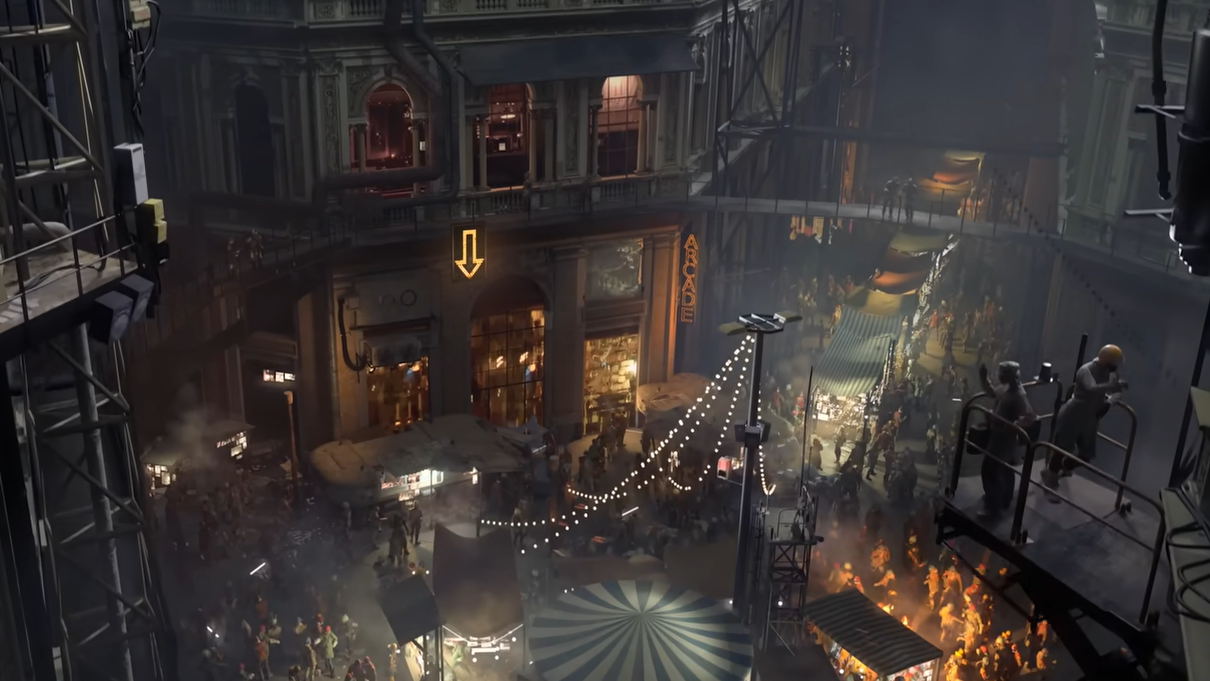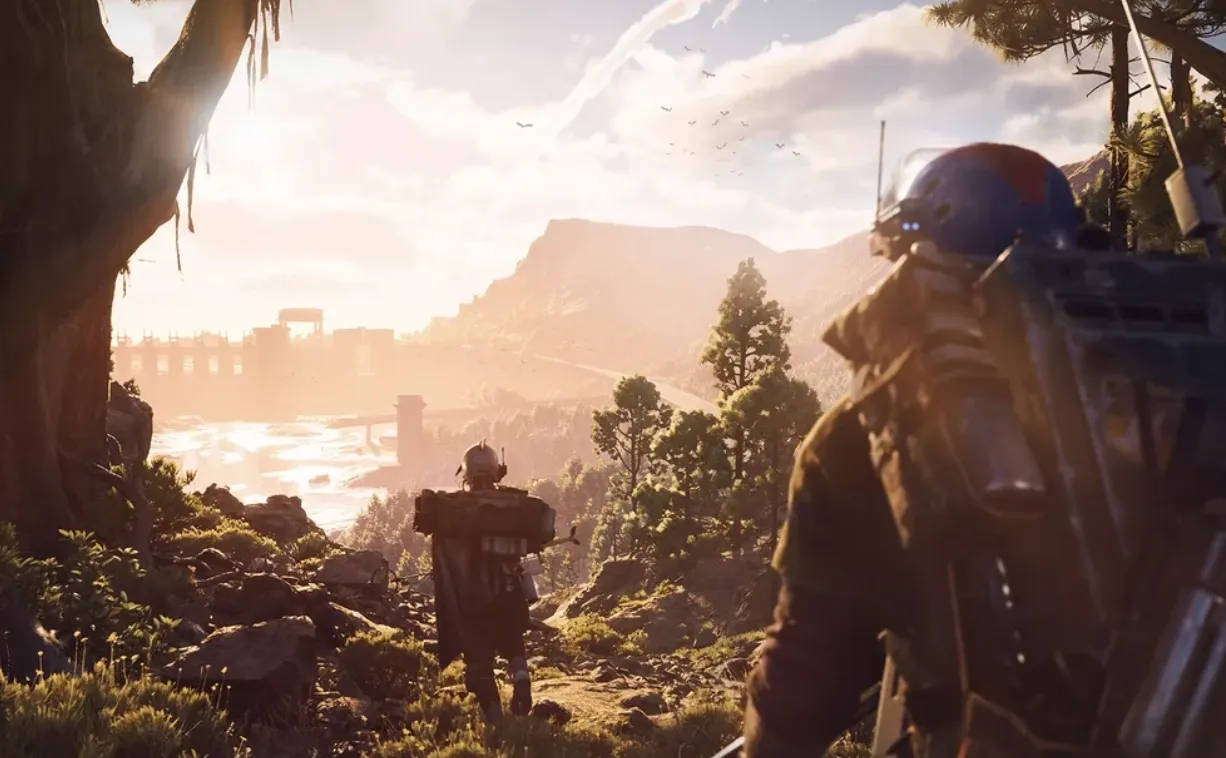Arc Raiders doesn’t include a menu-based player market or a base-level trade screen. Item trading is still possible, though—it just happens on the map. You drop what you brought, your partner drops what they owe, you both secure the goods, and you leave. On top of that, Speranza’s traders buy and sell gear, and a few vendor-side exchanges effectively function like small, targeted “trades.” Here’s how each option works, what’s safe to do, and where the limits are.
Arc Raiders trading overview (what you can and can’t do)
- There’s no built-in, out-of-raid player trading interface. You cannot swap items from a stash or base menu.
- Player-to-player trading is done in a live raid by dropping items on the ground and picking up your counterpart’s items.
- Many early mission turn-ins let you keep the requested items after completion, so squadmates can hand each other materials to progress more quickly without permanently losing them.
- Squad credit sharing helps: kills, container searches, and similar actions by teammates can count toward your objectives, reducing the pressure to find everything yourself on a given run.
NPC traders in Speranza (what each vendor sells)
Traders are the reliable, always-on counterpart to peer swaps. Each specializes in a category and typically requires certain levels to access higher-tier stock. Expect steep prices, but predictable availability.
| Trader | Category | What they offer |
|---|---|---|
| Celeste | Basic materials | Foundational parts and resources for crafting and upgrades. |
| Tian Wen | Weapons & ammo | Firearms, ammunition, and attachments once you meet level requirements. |
| Apollo | Grenades & gadgets | Explosives, utility items, and situational tools (flares, traps, etc.). |
| Shani | Security | Keys and other access-related items that open up routes and locked containers. |
| Lance | Medical, shields & augments | Heals, shield consumables, and augments; some niche exchanges are available here. |
Notes:
- Inventory improves with your level; if something’s missing, you likely need to rank up.
- Traders also buy items you don’t need, which is helpful for consolidating resources.
Vendor exchanges that feel like trading
Beyond buying and selling, there are a few frictionless give-and-get opportunities in the Traders tab that behave like tiny trade-ins. One practical example: Lance lets you exchange a Free Loadout augment for a Looting Mk. 1 augment. If a run goes sideways, pull a Free Loadout next time, extract with it, and convert that augment into something that accelerates future looting—or recycle it if you’re flush.
How to trade player-to-player safely (in-raid drop method)
This is the de facto way to swap items with friends or trusted Raiders. Done properly, it’s quick and secure enough for everyday bartering.
- Coordinate first. Party up and agree on the exact items and quantities. Pick a quiet meet spot on the map.
- Protect your swap in the Safe Pocket. From loadout selection, choose a custom loadout and unequip everything so you spawn “naked.” This keeps your Safe Pocket slot available. Place the item you’re delivering—or the agreed barter items (e.g., a stack of common materials)—in your Safe Pocket.
- Drop and confirm. Meet, quickly drop your item(s), have your partner drop theirs, verify quantities, then pick up your new goods immediately.
- Bank the swap. Move the new item(s) into your Safe Pocket right away. Then either extract normally or use the surrender option to return to Speranza. If you surrender, anything not in your Safe Pocket is forfeit, so make sure everything you care about is pocketed first.
Tips:
- Travel light for trades—an empty bag reduces confusion and speeds up the handoff.
- Avoid high-traffic areas to limit third-party interference.
- If you’re bartering with a stranger, split the handoff into small steps (partial drop for partial drop) to build trust.
What makes a good barter token
Because there’s no global currency, Raiders often use widely useful items as “tender” to value a trade. Common choices include basic crafting parts or broadly desirable blueprints. Flexible, stackable materials make it easier to hit precise trade values without overpaying.
Community coordination (optional, still in-raid delivery)
Player-run listing boards have emerged to match buyers and sellers across PC and console. The typical flow is simple: you post a buy or sell order with the item and the barter you want, get matched with another player, coordinate the details via messages or voice, then complete the actual swap using the in-raid drop method above. There’s no escrow—your Safe Pocket and process discipline are your safeguards.
Ground rules you’ll commonly see:
- No real-money transactions.
- Use Safe Pocket for anything you can’t afford to lose.
- Confirm the swap in messages and leave feedback to keep the ecosystem healthy.

When to trade versus when to buy
- Trade in-raid when you and a partner can quickly meet and swap specific items, or when you’re converting surplus into something your squad needs right now.
- Buy from traders when you need predictable access to consumables, attachments, medical supplies, keys, or a specific weapon without the risks of a player meet-up.
- Use Lance’s augment exchange to convert failed runs into forward momentum via Free Loadout → Looting augment swaps.
Common pitfalls to avoid
- Forgetting the Safe Pocket. Using a Free Loadout removes the Safe Pocket slot. For trades, go custom and unequip everything so the pocket remains available.
- Leaving items out of the pocket before leaving. If you surrender, only Safe Pocket items are guaranteed. Pocket first, then exit.
- Stack confusion. Agree on counts and item tiers in chat before you drop. Confirm again at the meet spot.
- Busy meet points. If you can hear frequent gunfire or see enemy patrols nearby, relocate. A quiet corner is worth the extra walk.
There’s no auction house and no base trade terminal, but swapping still fits neatly into Arc Raiders’ loop. Use in-raid drops for quick, targeted trades; lean on Speranza’s vendors for guaranteed stock; and take advantage of small vendor exchanges to turn a bad run into a better one. Keep your Safe Pocket in play, and you’ll bank more wins than losses.


